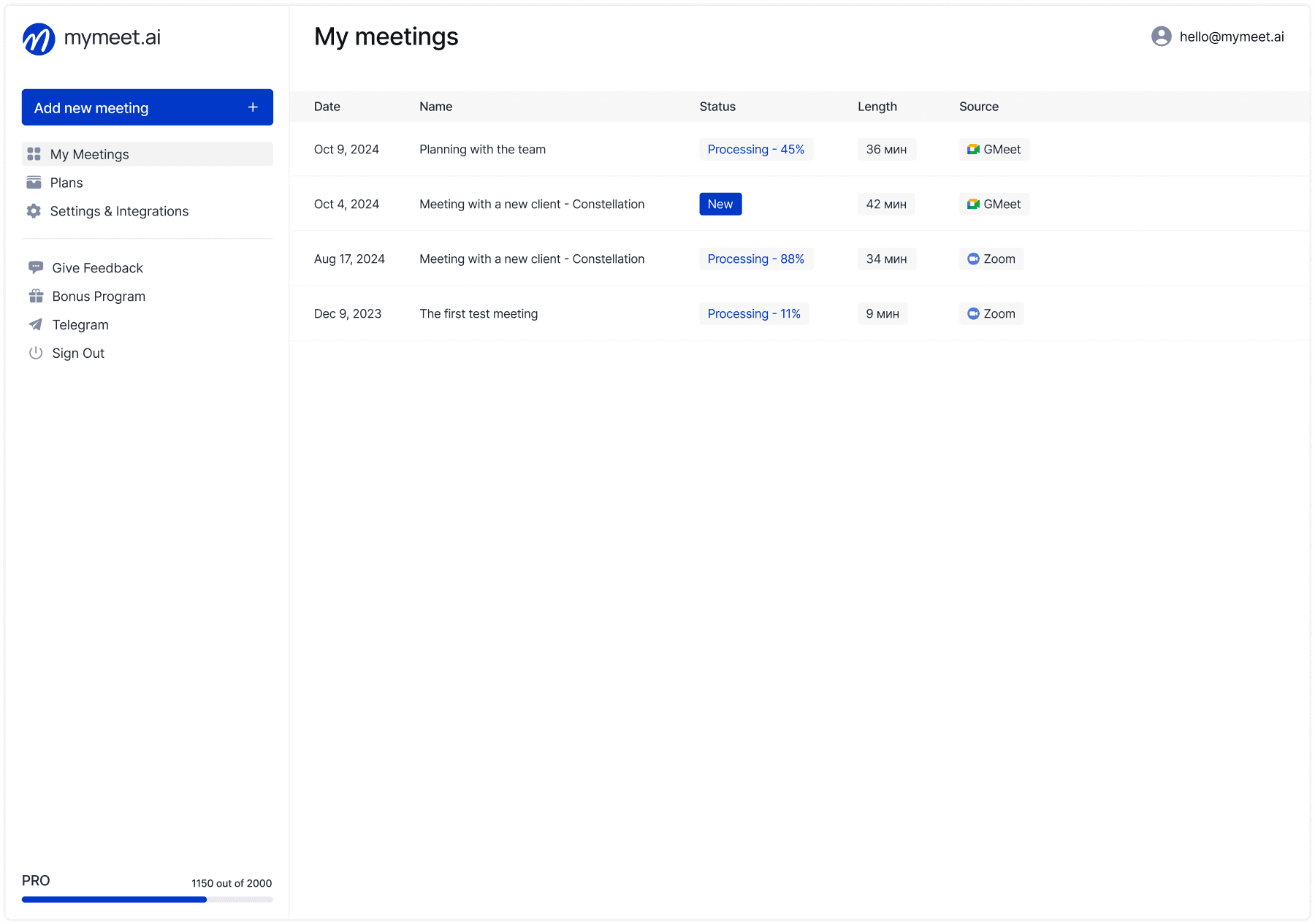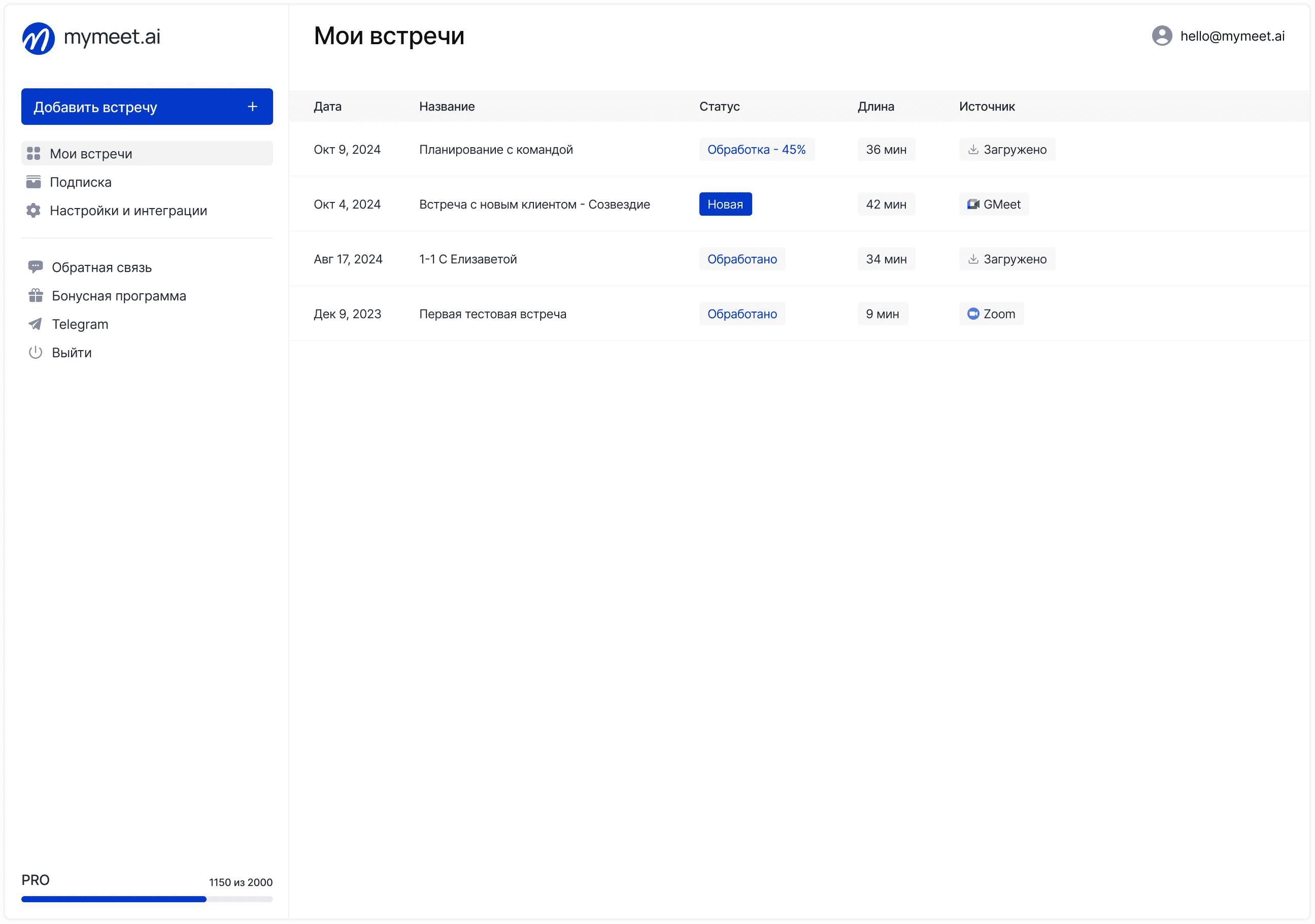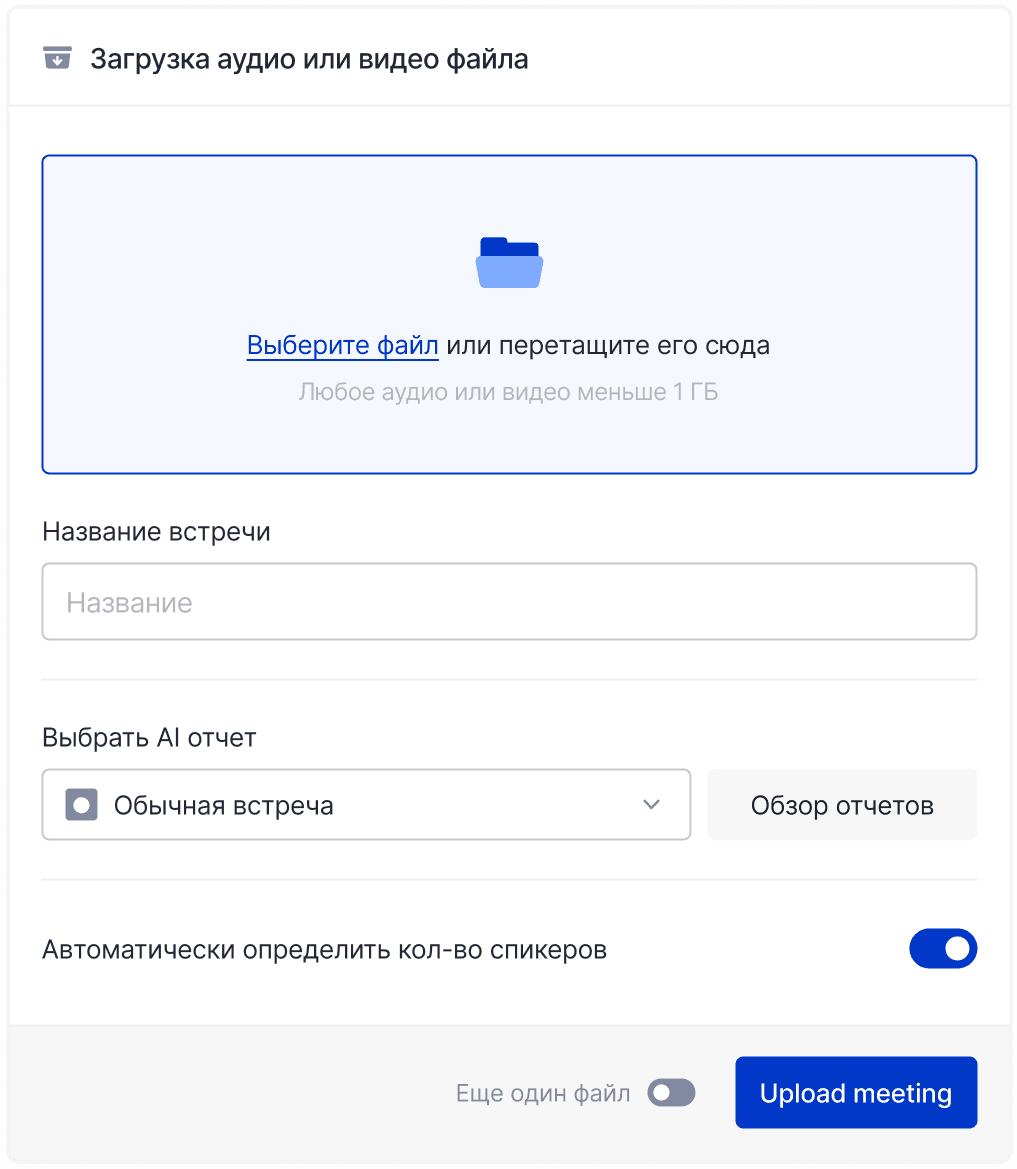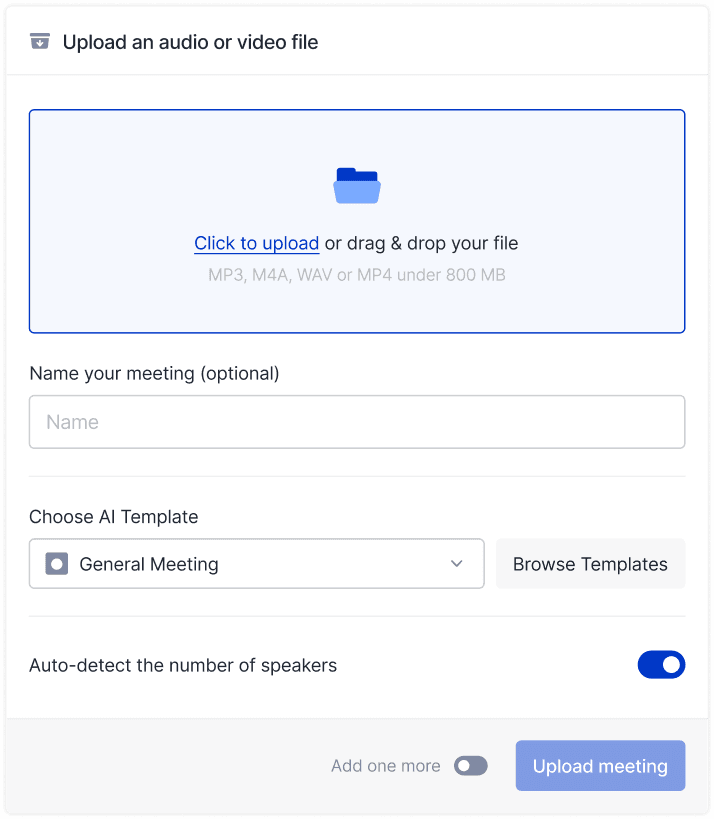Sales Mastery

Ilya Berdysh
Jul 16, 2025

The sales director at TechFlow Solutions was spending 6-8 hours per week listening to manager call recordings to monitor work quality and identify successful sales techniques. Preparing for a 30-minute meeting with each manager took 40 minutes of the director's pure time. After implementing AI call analysis, preparation time was reduced to 10 minutes per specialist, and the company began automatically identifying patterns of successful negotiations directly in the CRM system.
Artificial intelligence has made a huge leap for B2B sales in modern companies. Machine learning and process automation allow sales teams to transition from intuitive decisions to a data-driven approach, significantly increasing negotiation conversion and reducing sales cycles. AI technologies enable analysis of every client interaction and identification of success factors.
Artificial Intelligence in B2B Sales

The implementation of artificial intelligence in sales processes fundamentally changes approaches to working with clients. Modern AI systems analyze massive amounts of data about buyer behavior, identifying hidden patterns and predicting deal closure probability.
The Role of Artificial Intelligence in Modern Sales
Artificial intelligence transforms every stage of the sales process — from lead generation to post-sale service. AI analyzes data from multiple sources: CRM systems, email communications, call recordings, website behavior, social networks, and external databases.
Predictive analytics allows identifying the most promising leads before first contact. Machine learning algorithms assess deal closure probability based on historical data and current potential client behavior.
Differences Between AI Sales and Traditional Methods
Traditional sales rely on manager experience and intuition, leading to subjectivity in prospect evaluation and uneven team results. AI systems provide objective analysis of each interaction and supply data for making informed decisions.
Automation of routine tasks frees up sales manager time for strategic client work. AI can automatically send personalized follow-up emails, schedule meetings at optimal times, and create individual proposals based on client needs analysis.
AI Development Trends in Sales
Conversational AI and natural language processing open new possibilities for analyzing sales communications. Systems can automatically analyze conversation sentiment, identify customer objections, and suggest optimal responses in real-time.
Generative artificial intelligence revolutionizes sales content creation. AI can automatically generate personalized commercial proposals, presentations, and follow-up materials adapted to each client's specifics and industry.
AI-Based Sales Automation Tools
The modern market offers a wide spectrum of AI solutions for various aspects of the sales process. Choosing appropriate tools depends on business specifics, team size, and company technological maturity.
AI Solution Type | Core Functions | Implementation Time | Conversion Impact |
Lead Scoring | Lead quality assessment, prioritization | 1-2 months | 15-30% conversion growth |
Sales Intelligence | Customer behavior analysis, insights | 2-3 months | 20-40% sales cycle reduction |
Conversational AI | Call analysis, manager coaching | 1-3 months | 25-50% win rate improvement |
Outreach Automation | Personalization, timing, follow-up | 2-4 months | 30-60% response growth |
Lead Scoring and Predictive Analytics
Lead scoring systems use machine learning to automatically assess incoming lead quality. Algorithms analyze dozens of parameters: demographic data, website behavior, acquisition source, content interaction, company size, and industry.
Predictive models forecast deal closure probability and optimal contact timing. This allows sales managers to focus efforts on the most promising opportunities and personalize the approach for each potential client.
Outreach Automation and Personalization
AI platforms automate cold outreach processes, creating personalized messages based on analysis of public information about companies and contacts. Systems determine optimal sending times, choose most effective communication channels, and automatically plan follow-up sequences.
A/B testing algorithms continuously optimize message templates, email subjects, and call-to-action elements. This ensures constant improvement of open and response rates for outreach campaigns.
Sales Conversation Analysis with AI
Speech processing technologies analyze sales call recordings in real-time, providing managers with prompts and recommendations during conversations. AI can determine customer emotional state, identify interesting moments, and warn about deal breakdown risks.
Post-conversation analysis helps identify best practices of successful managers and replicate them across the entire team. Systems automatically create meeting reports, highlight key agreements, and generate tasks for follow-up activities.
Methods for Increasing Conversion with AI
Artificial intelligence impacts conversion through multiple mechanisms: from improving lead quality to optimizing sales presentations and personalizing customer experience.
Key ways to increase conversion with AI:
Precise lead qualification — automatic assessment of purchase readiness and payment ability
Offer personalization — individual solutions based on client needs analysis
Optimal contact timing — determining best time for calls and meetings
Pain point identification — automatic analysis of client problems from conversations
Objection prevention — preparing arguments based on previous interactions
Follow-up automation — timely reminders and personalized materials
Data-Based Offer Personalization

AI analyzes all available client information — from public company data to interaction history — and creates detailed needs profiles. Based on this analysis, the system generates personalized commercial proposals adapted to the client's business specifics.
Dynamic pricing allows automatic offer adjustments depending on client size, deal potential, and competitive situation. AI can suggest optimal cooperation terms that maximize closure probability while maintaining profitability.
Optimal Contact Timing

Machine learning analyzes customer behavior patterns and determines the most effective time for various communication types. Systems consider time zones, work schedules, communication channel preferences, and historical response data.
Predictive models can identify moments of increased purchase readiness based on client behavior changes: increased website activity, specific content requests, team changes, or company financial condition changes.
Purchase Readiness Identification

AI systems track multiple purchase readiness signals: from digital behavioral traces to verbal indicators in conversations. Algorithms identify changes in communication sentiment, information request frequency, and process engagement.
Scoring models assign each lead a real-time purchase readiness score, allowing sales managers to prioritize efforts and adapt interaction strategy to the client's current decision-making stage.
mymeet.ai: AI Platform for Sales Automation

The mymeet.ai platform provides sales teams with advanced AI tools for analyzing sales meetings and optimizing negotiation processes. The system is designed specifically for the global market with understanding of modern B2B business specifics.

Key mymeet.ai capabilities for B2B sales:
✅ AI sales meeting analysis — automatic identification of client pain points, objections, and interest moments
✅ Sales manager coaching — objective assessment of presentation quality and recommendations for improving sales techniques
✅ Success pattern identification — automatic determination of factors that lead to deal closure
✅ CRM update automation — integration with leading CRM systems for automatic meeting report creation and task generation
✅ Competitive analysis — identification of competitor mentions and analysis of comparative advantages

✅ Personal recommendations — individual advice for each manager based on their negotiation analysis

✅ Best practice knowledge base — automatic creation of successful sales technique libraries
✅ Enterprise-grade data protection — secure processing of confidential information with advanced security standards
TechFlow Solutions Case: Saving 15 Hours Weekly
TechFlow Solutions, managing enterprise software implementations, implemented mymeet.ai for sales quality control. Before automation, the department head spent 6-8 hours weekly listening to manager calls and 40 minutes preparing for each personal meeting.
After implementing AI analysis, meeting preparation time was reduced to 10 minutes per manager, and total sales quality control time decreased to 30 minutes daily. The company gained the ability to automatically identify successful sales techniques and replicate them across the team through CRM integration.
TechFlow Solutions' experience shows real solution effectiveness: the company reduced sales quality control time from 6-8 hours to 30 minutes daily while improving manager coaching quality. Leaders gained the ability to quickly identify and replicate successful techniques across the entire team.
Train employees to work with the AI assistant. Submit an application via the form for a corporate webinar.

AI Integration into Sales Processes
Successful AI technology integration into sales processes requires a strategic approach considering business specifics, team readiness, and company technical infrastructure.
AI Tool Integration Stages
The preparatory stage includes auditing current sales processes, assessing data quality, and determining priority automation areas. It's important to start with processes where AI can deliver quick and measurable results.
Pilot implementation on a limited group of managers allows testing AI solutions in real conditions and gathering feedback. A successful pilot serves as effectiveness proof for skeptical team members.
Gradual scaling ensures smooth transition of the entire sales organization to new tools. Progressive functionality expansion allows the team to adapt to changes without decreasing current performance.
Training Sales Teams to Work with AI
Training programs should include both technical preparation for working with AI platforms and developing skills for data interpretation and machine learning-based decision making. Managers must understand AI tool capabilities and limitations.
Creating internal champions — experienced managers who first mastered AI technologies — helps spread best practices and support colleagues during adaptation. Peer-to-peer learning is often more effective than formal training.
Measuring AI Sales Effectiveness
The metrics system should reflect AI impact on key sales indicators: lead conversion, sales cycle length, average deal size, and overall team productivity. It's important to track both quantitative and qualitative changes.
ROI from AI investments is measured through revenue increase, manager time savings, and sales process quality improvement. Most companies observe positive ROI within the first 6-12 months after implementation.
Practical AI Implementation Cases in Sales
Companies worldwide demonstrate successful examples of applying AI technologies to increase sales effectiveness and improve customer experience.
Increasing Cold Outreach Conversion
Automating cold outreach personalization with AI significantly increases potential client response rates. Systems analyze public company information and create relevant messages considering recipient business specifics.
AI platforms optimize message sending timing, choose most effective communication channels, and automatically plan follow-up sequences. Result — increased cold outreach responses and more qualified meetings.
Sales Presentation Optimization
Analyzing successful presentation recordings with AI helps identify key factors influencing client decisions. Systems determine optimal presentation structure, most convincing arguments, and effective objection handling techniques.
AI can provide real-time prompts to managers during presentations, recommending when to move to the next slide, how to respond to specific objections, or what additional materials to show clients.
Follow-up Communication Automation
AI-based automatic follow-up systems ensure timely and personalized client interaction after meetings. AI analyzes meeting content and automatically creates relevant materials for sending.
Intelligent reminder systems notify managers about contacting clients at optimal times and suggest personalized message variants based on previous interactions.
AI Implementation Challenges in Sales
Despite obvious advantages, implementing AI technologies in sales processes involves several challenges that must be considered when planning projects.
Technical Integration Complexities
Integrating AI platforms with existing CRM systems and infrastructure may require significant technical resources. Data quality often becomes a limiting factor for machine learning effectiveness.
Ensuring real-time data processing and fast system response is critically important for sales processes. Latency in providing recommendations can reduce AI tool effectiveness.
Sales Team Resistance
Experienced managers may be skeptical of AI recommendations, preferring to rely on their own intuition and experience. It's important to demonstrate AI value through concrete examples and gradual implementation.
Fears of artificial intelligence replacing human labor require quality communication about AI's role as assistant, not replacement for sales managers. Training and team development help adapt to new technologies.
Ethical Aspects of AI Sales
Using AI for analyzing client data raises privacy and ethics questions. Companies must ensure transparency in personal data usage and comply with data protection regulations.
Communication automation shouldn't mislead clients about whether they're communicating with humans. Honesty and transparency in using AI technologies strengthen client trust.
Conclusion
Artificial intelligence fundamentally transforms B2B sales, providing companies with unprecedented opportunities to increase conversion and sales process effectiveness. Companies that first implement AI technologies in sales gain significant competitive advantages in the market.
Successful AI implementation requires strategic approach, quality data, and team readiness for changes. Technologies should complement human sales expertise, creating synergy between AI analytical capabilities and sales manager relationship-building skills.
The future of B2B sales belongs to companies that effectively combine AI technologies with deep understanding of client needs. Investments in artificial intelligence pay off through conversion growth, sales cycle reduction, and team productivity increase.
Start digital sales transformation today: test mymeet.ai's AI capabilities for analyzing your sales meetings. 180 minutes of free testing will show how artificial intelligence can revolutionize your sales team's work and increase negotiation conversion.
FAQ about AI in B2B Sales
How does AI help increase B2B sales conversion?
AI increases conversion through precise lead qualification, offer personalization, optimal contact timing, and sales conversation analysis. Predictive analytics helps identify most promising clients and adapt strategy for each deal.
Which AI tools are most effective for sales?
Most effective are lead scoring systems, conversation analysis platforms, outreach automation, and predictive analytics. Specific choice depends on business specifics, team size, and current sales processes.
How much time is required to implement AI in sales?
Simple AI tools can be implemented in 1-2 months. Complex systems with CRM integration and team training require 3-6 months. Full sales process transformation may take 6-12 months.
Will AI replace sales managers?
AI complements sales manager work rather than replacing them. Artificial intelligence automates analytical tasks and provides insights, allowing managers to focus on relationship building and strategic client work.
How to ensure data security when using AI?
Choose AI platforms with enterprise-grade security and data protection compliance. Ensure data encryption, access control, and regular security audits. Use solutions with transparent decision-making algorithms.
What ROI can be expected from implementing AI in sales?
Typical ROI is 200-400% in the first year. Main sources: 15-30% conversion growth, 20-40% sales cycle reduction, 10-25% average deal increase, and 30-50% team time savings.
How to choose the right AI platform for sales?
Evaluate functionality, CRM integration ease, analytics quality, regulatory compliance, and total cost of ownership. Always test the solution on real data before making decisions.
Do teams need special skills to work with AI?
Basic data skills and understanding of machine learning principles are useful but not critical. Modern AI platforms have intuitive interfaces but require training in result interpretation.
How to measure AI tool effectiveness in sales?
Track lead conversion, sales cycle length, average deal size, meetings per manager, and overall team productivity. Compare metrics before and after AI implementation.
What mistakes are most common when implementing AI in sales?
Main mistakes: underestimating data quality importance, trying to automate all processes at once, insufficient team training, ignoring ethical aspects, and lack of clear implementation strategy with measurable goals.
Ilya Berdysh
Jul 16, 2025






